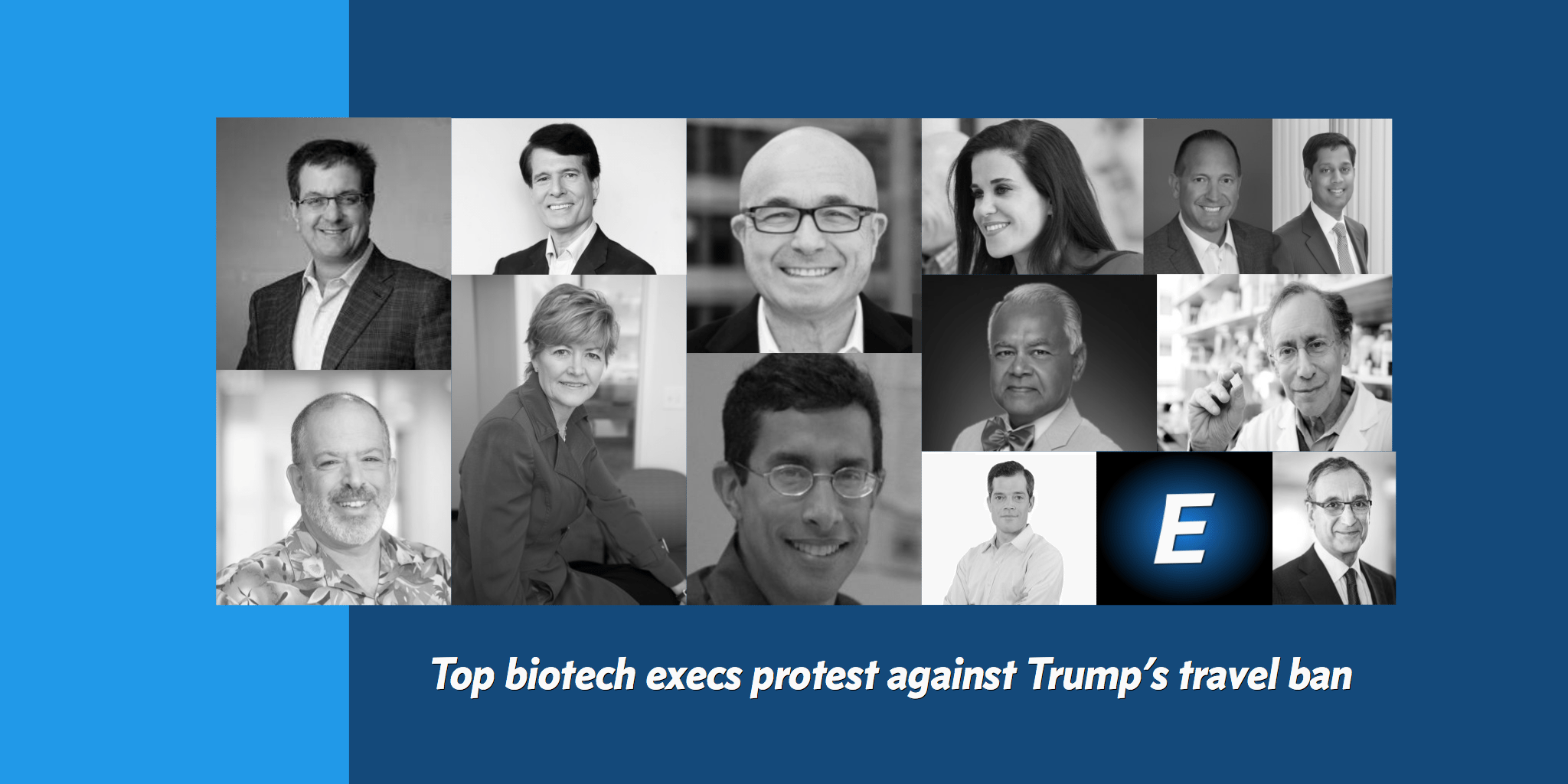
A swarm of top biotech execs protest against Trump’s travel ban, saying it threatens the entire industry
The reaction against President Trump’s decision to ban travel from 7 predominantly Muslim nations drew an instant reaction from the biotech world, gaining a quick …
Sign up to read this article for free.
Get free access to a limited number of articles, plus choose newsletters to get straight to your inbox.